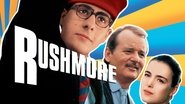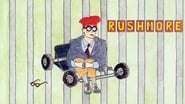Lovesusti
The Worst Film Ever
Humaira Grant
It’s not bad or unwatchable but despite the amplitude of the spectacle, the end result is underwhelming.
Zlatica
One of the worst ways to make a cult movie is to set out to make a cult movie.
Marva
It is an exhilarating, distressing, funny and profound film, with one of the more memorable film scores in years,
Gabrielius Eidintas
one of Wes Anderson's earlier films named Rushmore presents the life and struggles of a 15 year old prodigy Max. This is where I found the first downside of the film - Jason Schwarzman's Max disappointed me. I did not feel any empathy towards this character. Thus I found no connection with him. In my opinion he was too unpredictable and at times even irritating. Bill Murray was great in this movie. Loved every second of his screen time. He pulled of a fine performance and impersonated a hilarious and complicated character. A had an issue with the visuals. I am a huge admirer of W. Anderson work and style I can assume that back in 1998 this style was not fully developed yet contains similarity to his other films. The range of colors used in Rushmore is wider compared to Moonrise Kingdom or even The Royal Tenenbaums and that I did not enjoy. I watch this director's films without searching for realism but at times this film seems to be too serious and at times so childish and audience members get confused. In conclusion Rushmore is a enjoyable and fun film to watch yet it did not affect me emotionally like other Anderson's films do so greatly.
Evan Wessman (CinematicInceptions)
Watching Max Fischer go through his bold and unorthodox escapades was fairly entertaining. He's clearly studied up on how to be professional and suave, but doesn't quite know when to employ these tactics. His word choice immediately stands out as unusual, but what is also remarkable is how unafraid he is to fail. His attempts to get in good with Rosemary are doomed from the start, but it takes him months of failing to finally give up on her. Maybe he's just an idiot for throwing himself at his goal headlong and humiliating himself over and over again.As seems to be the case in most Wes Anderson films, we get an odd protagonist that creates a strange reality for themselves. The surrealism of the movie really speaks to Anderson's directing work, because several scenes convey events that aren't that strange in themselves but they feel a odd because of how they are presented. Magnus, Rosemary, and Dirk are good examples of this because they behave pretty normally for the most part, but we see them through Max's warped and stylized vision.Most of the movie consists of Herman Blume and Max fighting over Rosemary, sometimes thwarting the other's efforts to win her and sometimes assisting the other. These scenes said a lot about Herman with the childish nature that he and Max fight with. For Max to sabotage Herman is not exactly acceptable, but it is at least understandable since Max is at a clear disadvantage in this war; but for Herman to stoop to the same level is beyond immature. However, it cannot be denied that both characters are willing to have goals. This seems to be a point that Wes Anderson likes to insinuate in his work: going after your goals may have disastrous results and may cause you to do some bad things, but it is better than living without a purpose and being boring. I don't know that I fully agree with this, but it's worth thinking about.The craft that is displayed in this film is decent, but has definite room for improvement. The dialogue and content of each scene was good, but I didn't like the pacing. That may just be a personal thing, but sometimes it seemed like the story lacked direction. The style was cool, though it's clear that Anderson had not fully developed his technique at this point in his career. The acting was solid all around.This is good to watch if you're really interested in Anderson's techniques or if you want to study some good acting. I saw this at a screen writing workshop as part of an exercise in structure. Within the class it was educational, but it may not be the best resource for aspiring writers. For those just viewing for enjoyment, this isn't anything that you'll get a lot out of, but if you come across it, it's worth a try. Overall Rating: 6.9/10
Prismark10
Wes Anderson's second feature film continues with his off kilter style with a twist of French New Wave cinema.Max Fischer (Jason Schwartzman) is a 15 year old student who managed to get into an elite primary school, Rushmore but spends all his time on extracurricular activities than actual studying much to the chagrin of the headmaster Dr Guggenheim who is concerned about his grades.Herman Blume (Bill Murray) is an industrialist wit an unhappy marriage, twin sons who cannot abide him and befriends Max. Both fall out over Rosemary Cross (Olivia Williams) a widowed teacher who arrives at Rushmore as a teacher. Max becomes infatuated with her and Blume starts to date her.There are times you actually feel like slapping Max as he comes across as obnoxious. I kept forgetting he is only 15 years old. Max is a person who has intellect, ability but lacks the emotional maturity that comes with age. He slowly realises how rude he has been to people around him and decides to make amends.The screenplay by Wes Anderson and Owen Wilson has plenty of offbeat moments underlined with a dark melancholy which we experience in Bill Murray's face but it is not always consistent. However this film marks out Anderson as a talent to watch.
sharky_55
This is where Anderson really got into his rhythm. Bottle Rocket was admittedly a little mellow; the characters were petty criminals but it felt like we were being pushed to like them, to embrace their endearing qualities. Here, Anderson toes the line ever so closely with Max Fischer, the 15 year old subversion of the teacher's pet who is one of the worse students at Rushmore Academy, but gets an A+ for extracurricular activities. He's a bit of a pompous asshole but he thinks he's god's gift to the private school; "We don't offer it yet," he so quick-wittedly corrects the headmaster. He didn't gain acceptance at the prestigious academy because of academic success, but because he wrote a "little one act about Watergate" and has since taken over the drama club. Max Fischer seems to think that because he is the president of so many successful clubs (in his mind), because he can speak a few lines of Latin, and because he brought Cross' classroom to life with her own little aquarium it makes him mature enough for an relationship with her. This is of course not true, but still he persists pass the boundaries of appropriateness. What Max seems to be doing iv vicariously overcompensating for his lack of parental support; he is like a stand in parent himself, giving haircuts, making conversation with the mums of the students, bossing around his actors like rowdy little children. He convinces himself he is not like the ramble that is Herman's children. His father is only a lowly hairdresser, so he constructs his own little world to replace his disappointment. He tricks Cross with fake blood in order to stage a moment of intimacy. When Margaret Yang casually admits that she lied about her science project, it visibly shocks Max into a change. Would Max, up to that point, ever admit something that he perceives as vulnerable and disarming? There is no place for weakness or underachievement in his life. When he joins his cast on-stage for the round of applause, with the pseudo-artistic broken nose for good measure, the moment is slowed down to soak in all his glory. When he gives a cordial speech to his new public schoolmates, the camera slowly zooms until he is the only one occupying the frame. This is the Max Fischer show after all.What Rushmore excels at is balancing the two dilemmas of Max and indeed the older Herman Blume. They both are chasing the same woman, but while their ages are years apart, they are both remarkably childlike and immature about the whole affair. They descend to tricks and sabotage and underhanded gestures in order to get ahead of the race, and are both quite self centred. There's a moment when Max introduces Herman to his father and his barbershop, after all the lies about him being a hotshot surgeon ("My father may only be a doctor, but we manage"), where Max finally shows some humility and unveils what his life really is like, and Murray's reaction is just fantastically telling. It's an obvious turning point for the man who seems to be a perfect prototype for an older Max had he not gone through the film's events - crotchety, lonely, for so long basking in the shallow vanity of his own achievements until he hits breaking point and begins self-loathing. 10 million? Guess so. It's not until Max admits his flaws that Herman can too. This is also the film where Anderson really embraced his own stylistic tendencies. The opening montage of all the different clubs Max is part of, with matching text, is as vivid and engaging as any introduction to a Wes Anderson character. There are only brief snapshots but he uses the compositions of those group portraits to their fullest extent in order to portray Max as a person who isn't in it for the enjoyment or camaraderies but for personal achievement. It is also his first film to use the intertitle to chop up the segments of time; parting stage curtains emblazoned with the passing months creates a sense of precise direction, as if it was Max overseeing the production with his own obsession with perfection and control. It just feels a whole lot more confident than Bottle Rocket. There's the lateral and horizontal camera movement at hard 90 degree angles that he has become know for; see the long-take follow shot unveiling Max's takeover of the baseball field as if he owns the place and is entitled to it, and his many lonely wanderings in the school hallways and ground. See how Max and Rosemary stare down the camera as they talk to each other, with a feigned sense of intimacy that I'm sure is very real in Max's mind. The slow motion and curtain close is used in the final scene. It is serenaded by The Face's Ooh La La, which I think is very fitting. This also marks, in my opinion, Anderson's blossoming ability to choose the most appropriate song for his films. Max is a different kind of mature now, but don't we all wish we could return to that one moment with the knowledge and experience of now? In his first kind-of-romance, he learns some harsh lessons, but is able to take those with him into the future. Glory fades, but underneath is a 15 year old boy with a lot more to him than just the clubs he heads.







